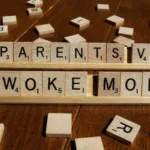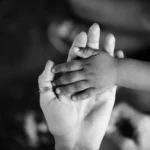
Published August 8, 2023
The following essay is an adapted excerpt from Carrie Gress’ new book, The End of Woman: How Smashing the Patriarchy Has Destroyed Us, out August 15 from Regnery.
Fairy tales have been told across cultures and continents for millennia. More than simply an entertaining story, fairy tales are a culture’s vehicle to share its values and underscore its most prized virtues. We know many of their familiar themes and patterns, having heard them since early childhood.
One recurring fairy tale plot point is the evil queen or matriarch, as seen in “Cinderella,” “The Little Mermaid,” and “Snow White.” This woman is envious of a younger and prettier upstart and will go to any lengths necessary to get rid of the threat. As the story unfolds, we know implicitly who the good characters are, as well as the villains. We know that the evil queen is not a victim, and her grasping at power and status makes her the purveyor of misery as she tries to destroy the life of the protagonist.
And as every little girl has done for millennia, we cheer when the queen’s vile plans are foiled, and the kind and beautiful princess is finally free to live her life. The miserable matriarch’s envy led to her own demise. This recurrent theme has its own moral: envy is called a deadly sin for a reason, for it will destroy the envious from the inside out.
Feminism has rewritten this fairy tale’s script. No longer is envy the downfall of women, but a badge of honor. And the ones we envy aren’t younger upstarts, but men, and not the best of men, but men like Hugh Hefner or Don Draper. The fairy tale has told us that men have liberties that far surpass our own and are the real pinnacle of a life well lived.
This new fairy tale has its roots in the 1790s, with Mary Wollstonecraft’s call to restructure society, to make men more like women and women more like men. For 150 years, women agitated against the patriarchy but never quite figured out a way to erase it completely. Then it happened, as if the magic spell had been discovered. Women found the secret way to bring down the patriarchy once and for all: destroying the family.
For over 50 years, women have been clamoring to make themselves into men—mentally and now biologically—but in the scramble we have frittered away what it means to be a woman. The solid ground that used to be beneath our feet has eroded into the sea, leaving nothing to stand on. Our identity has been cobbled together with this grasping at manhood, while what it means to be a woman has dissolved and is now an unanswerable question. There’s no place left to see what womanhood is, so enshrined have we made the male model and the neutral notion of person, human being, or individual. In our envy, women have been erased.
The fruits of envy haven’t just targeted men but also children—the needy, demanding upstarts who we are told are the real obstacle to our happiness. Following the pattern of manhood, the seed has been deeply planted that no woman should have to mother another. Mothering sets us back. Mothering enslaves us. This is the pro-choice fairy tale, complete with a parade of the victimized women in red robes and white bonnets, reminding us just how awful and enslaving motherhood is.
But what the red-robed and well-heeled women don’t understand is that, try as they may to rewrite the fairy tale, those agitating for something other than womanhood will never be the protagonists. Envy cannot make a hero, only an oppressor. The model we have followed has locked us into a caricature of ourselves, resembling the evil queen who not only destroys herself but everyone else around her with her grasping at power and control. It’s precisely her abandonment of all the things that could make her happy—classic elements such as kindness, service, love, compassion, tenderness, and graciousness—that are her (and our) downfall.
The power of the new feminist fairy tale is highly compelling, but it comes at a cost. The millions of women who have followed it blindly find themselves trapped in a world they didn’t expect, barren and broken, with hearts aching for more. This often manifests as rage and fear. Margaret Thatcher observed: “The spirit of envy can destroy. It can never build.” Feminists have failed to offer a future to build in their quest to purge the warts of the past. Yes, surrogates can be found—pet parents with fur babies—but the structure of mothering is built deeply into our bodies and souls, despite our scarce acknowledgment of it.
The stories we tell are powerful. The saddest part of all is that we have been taught to envy our very children, who are made for our love not our spite. Until we women can abandon our envy-driven identity, we will continue to rage, resent, destroy, and demean those for whom we were made to love and care.
What we are living through boils down to something shockingly simple. Where feminism has taken the place of religion, the queen bees are the stand-in for the clergy, preaching the gospel of discontent, narcissism, self worship, and human sacrifice. It has become the “cool” religion where the elites and celebrities worship—and are worshiped.
Dr. Carrie Gress is the author of the upcoming book: The End of Woman: How Smashing the Patriarchy Has Destroyed Us (August 15, 2023). She is a fellow at the Ethics and Public Policy Center and the founder and co-editor of the online women’s magazine Theology of Home.
Carrie Gress, Ph.D., is a Fellow at the Ethics and Public Policy Center, where she co-directs EPPC’s Theology of Home Project. She earned her doctorate in philosophy from the Catholic University of America and is the co-editor at the online women’s magazine Theology of Home.









